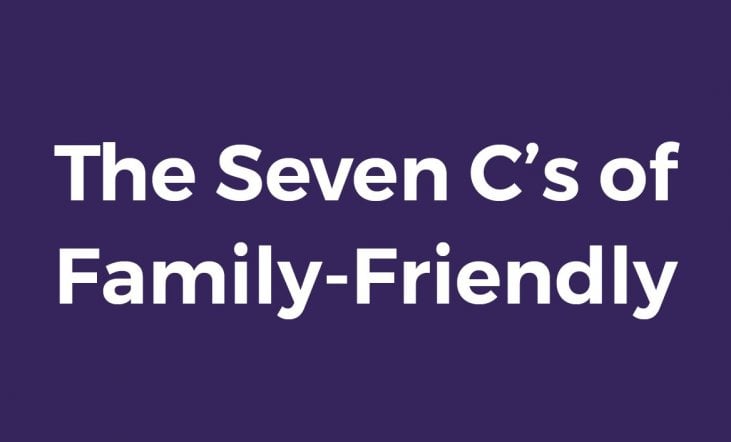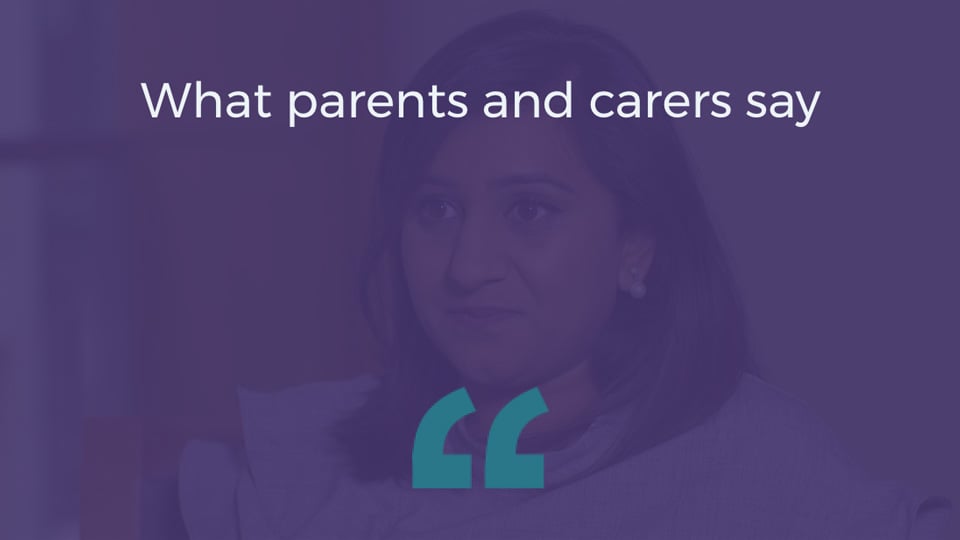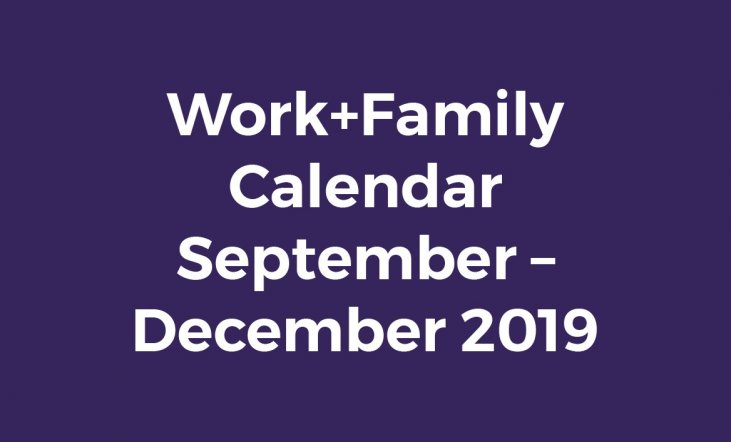Newsletter Sign Up
Regular work+family updates for
HR and diversity professionals.
My Family Care asks Penny: As the years go on, we are finding more and more people fall into what has been coined the "Sandwich Generation". What challenges arise for individuals who are caring for both children and their parents or a partner? What support can be provided to make this a positive situation?
Multiple generations
More and more of us are finding ourselves caring not only for our children but also for our parents or our partners parents. We are living longer, and because of this some families are beginning to include great-grandparents as well as grandparents.
In families where grandparents are still active this is a bonus rather than a burden, but in other instances it can add to the number of people who need your care and attention. This can be difficult to handle in a family where everyone is working together; it can prove debilitating when you add in the factor of a fragmented family. I once spoke to an individual whose parents and whose spouse's parents had all divorced and remarried, resulting in eight people looking to them for different types of care and support.
Eldercare is the new childcare
Juggling this with the demands of the workplace can seem daunting, if not impossible. Moreover, individuals generally don't identify themselves as carers, let alone 'come out' as carers to their employees and colleagues.
I recently heard someone say that eldercare is currently where childcare was 20 to 30 years ago. They highlighted that individuals face the same difficulties when talking about the challenges they face in the workplace that new parents faced decades ago.
Emotional roller coaster
Compound the issue of not feeling comfortable discussing the situation with your employer or colleagues and the usually difficult circumstances that surround a parent needing care and you can find yourself in a very lonely place.
Eldercare has few of the positives of childcare - it's not generally a happy time, you don't get nine months to prepare and often a parent's decline can emulate the reverse development of a child growing up. Family dynamics change and emotions run high as you begin to care for the person who used to care for you.
For all of these reasons, acknowledging the position you find yourself in can be painful and feel as if you are shining a light on an immensely private situation.
Support can be simple
However, the more carers feel able to acknowledge their needs and challenges in the workplace, the more likely it is that employers will offer support. Some employers are already beginning to do so; the pace is perhaps slower than it should be but just as childcare no longer carries the same stigma it did years ago, a tipping point will be reached when employers realise that by supporting their carers, they are contributing positively towards retention and performance.
Even simple steps taken by employers such as providing easy access to can be a lifeline - as acknowledged by an employee, who while not a member of the sandwich generation herself, has supported those who are:
"As a single woman, working full time, I am the primary carer for my Mother who has a debilitating illness and increasingly limited mobility. As well as caring for my own mother, I help look out for my neighbour with Alzheimer's and cared for my Father during his battle with Prostate cancer. UBS has a diversity network that provided information and advice through seminars, webinars and 1:1 advice session on caring. This support helped me come to terms with the fact that my feelings of helplessness did not mean I was failing as a carer. Knowing how lost I felt, I have been able to take what I learned and help pass on that support to others in need. Having a supportive team helped, by providing cover, flexible hours and friendship we have seen many people through the difficult journey that is caring. Knowing someone else is or has been in a similar situation adds a level of understanding and comfort that open up a high level of communication."
Sharing experiences
The mere fact of acknowledging the situation you find yourself in can start to make the unmanageable manageable. Losing a loved one happens to all of us at some stage and having to deal with illness and worry while juggling work and daily life is brutal. A surprising number of people will reach out and help if they understand the situation you're in, and what is more, they will point you to the support they know is available. When my father was alive, I made use of the backup care provided by UBS, through My Family Care, on a number of occasions, and I never hesitate to recommend it whenever anyone mentions having concerns over caring to me.
One of my colleagues, a working mother of 2 teenage girls, and the primary carer for her elderly mother with a number of medical conditions, made use of the seminars and webinars provided through UBS. Especially those highlighting the trials, tribulations and rewards of being part the sandwich generation! As her girls grew and became less dependent on her, her mother became more reliant and the shift of care changed significantly over a relatively short period of time. Learning how to manage relationships across the generations helped her to understand and prioritise her responsibilities, and still find a way to achieve a good work life balance. Something she said really hit home, "through the course of being a carer, I realised that I'm not - and never will be - superwoman! I gleaned this guidance from a webinar and it gave me comfort to know that regardless of who needed me and when, I could give the best help to those that needed it most."
On the right track
We have not yet got to the point where people think to look to their employers for help in the way that they do for childcare issues but I believe that as more people do so, more support will become available as employers become more aware of their employees' needs in this area.
Penny Curtis, Co-Chair of UBS FamilyMatters Network












